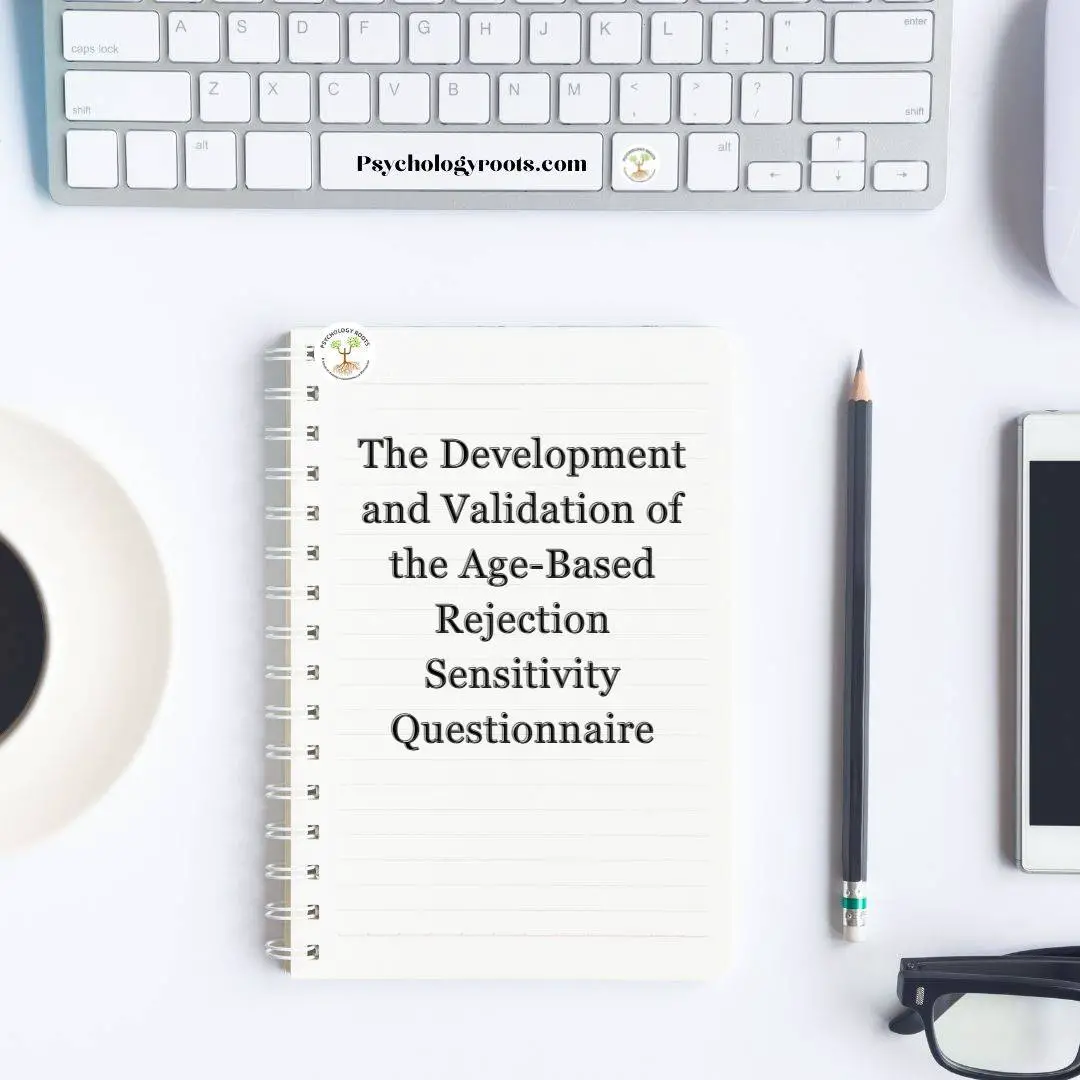Table of Contents
The Development and Validation of the Age-Based Rejection Sensitivity Questionnaire
Here in this post, we are sharing the article on “The Development and Validation of the Age-Based Rejection Sensitivity Questionnaire”. You can read the abstract of the article with a download link. We have thousands of articles in our collection (See articles). You can demand us any article related to psychology through our community, and we will provide you within a short time. Keep visiting Psychology Roots.
Abstract of the Article
Purpose: There is much evidence suggesting that older adults are often negatively affected by aging stereotypes; however, no method to identify individual differences in vulnerability to these effects has yet been developed. The purpose of this study was to develop a reliable and valid questionnaire to measure individual differences in the tendency to anxiously expect, readily perceive, and intensely react to age-based rejection among older adults: the Age-Based Rejection Sensitivity Questionnaire (RSQAge).

The Development and Validation of the Age-Based Rejection Sensitivity Questionnaire
Design and Methods: A pilot sample of older adults was asked to identify situations in which negative outcomes related to being an older adult might occur. From these responses, 58 scenarios representing 8 domains and themes were identified. Thirty initial items were created from this pool of scenarios, and this 30-item RSQ-Age underwent intensive testing and refinement to create the final 15-item RSQ-Age. The 15-item RSQ-Age was assessed for internal and test-retest reliability, as well as construct validity.
Results: Results revealed that the RSQ-Age has good internal (a = .91) and test-retest, r(72) = .74, p < .01, reliability and is a valid measure of age-based rejection sensitivity (RS). Construct validity was supported by correlations with personal RS, age-based stigma consciousness, self-consciousness, awareness of ageism, and self-esteem. Implications: The RSQ-Age is a useful measure for researchers and health care workers interested in the relationships between expectancy, perceptions, and reactions to age-based stigma and subsequent cognitive, behavioural, and health-related consequences.
Authors of the Article
- Sonia K. Kang
- Alison L. Chasteen
Avail Article [sociallocker id=64051]
[/sociallocker]
Need Any Other Article:
Are you looking for any other article? Don’t Worry, We provide you free and quickly. Just need to create a query in our community.
Information:
The purpose of our website is only to help students to assist them in finding the best suitable instrument for their research especially in Pakistan where students waste a lot of time in search of the instruments. It is totally free of cost and only for creating awareness and assisting students and researchers for good researches. Moreover, it is necessary for you to take the permission of scales from their representative authors before use because copyrights are reserved by the respected authors.
Help Us Improve This Article
Did you find an inaccuracy? We work hard to provide accurate and scientifically reliable information. If you have found an error of any kind, please let us know.
Add comment. we appropriate your effort.
If you have any scale or any material related to psychology kindly share it with us at psychologyroots@gmail.com. We help others on behalf of you.
Follow